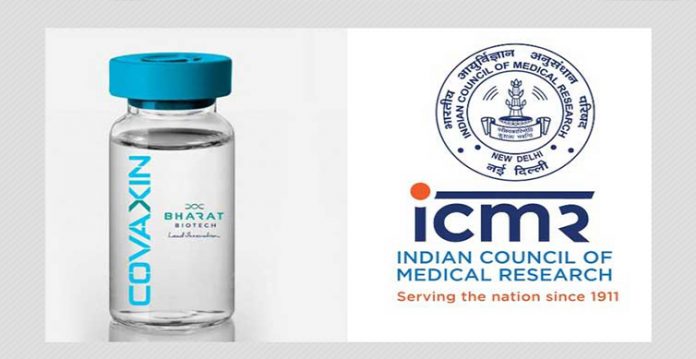With the curve of the coronavirus pandemic not seeming interested to get flattened, a vaccine is the only way to win over the virus that has engulfed the world with its hazardous effects.
India, which is the third spot in the list of countries with the highest number of Coronavirus cases, is looking to latch on to a vaccine to help it paddle away from the whirlpool by using emergency authorizations for the home-grown vaccines.
While an early availability could be a cause for celebration, one mustn’t forget the side-effects it can bring along with itself as baggage.
The Indian Council of Medical Research (ICMR) announced in its briefing that the government is seeking to grant authorization on an emergency basis to the vaccines currently in development.
The option is being considered as India is seeing a rapid increase in the cases and recording the highest single-day spikes. On 13th August, the nation witnessed close to 70k fresh cases of COVID-19.
The head of the health body ICMR, Balram Bhargava, discussed the same in the parliament’s meeting with other MP participants. He said that prior to any global brand, the authorization would likely be granted to Indian-origin vaccines, those that are developed and manufactured in the country itself.
However, Indian companies joined the race for the production of vaccines quite late. The two most spoken about vaccines in the contest, ZyCOV-D and Covaxin are proving to be good if the initial studies and tests are to be believed. They are in the midst of their phase-II trials. These two, being developed by ZydusCadilaand Hyderabad’s Bharat BioTech respectively had kickstarted the clinical trials in July. Another Coronavirus vaccine is also under development but hasn’t been disclosed as of now.
Private vaccine maker, Serum Institute of India is also overseeing simultaneous phase II/III trials of the Oxford-AstraZeneca vaccine, which started this week.
Even though traditional vaccines take a minimum of 6-9 months to complete their trials for their safe usage, under urgent requirements, an emergency authorization could also be made by the officials, said the head of ICMR.
This emergency authorization has earlier been considered and granted too in India as in the case of Remdesivir when the production was fast-tracked and approved to be made available in a larger scale for severely infected patients as it showed promising results. However, this doesn’t mean that a EUA drug/vaccine is formally introduced into the market for use. This is only considered when the situation calls for it for saving lives. Furthermore, it can be called a “restricted” vaccine with its use reserved for emergencies. Prior to this, no vaccine was ever given a EUA.
Coming to the most vital part, the safety of the coronavirus vaccine is highly speculated if and when it is approved on an emergency basis. As has been understood by now, general vaccines require a long time for developing and then undergoing all the three phases of the trial to deem it safe for use. If a vaccine is released this early, without any proper trials, it may pose a threat to the ones who get it administered, though nothing is guaranteed.
The questions being hit on the Russian formulation, Sputnik V vaccine may also be reversed on other vaccines opened for use at this time. This is due to the fact that an expedited vaccine carries a high risk of side-effects which would if not be ruled out after proper experiments. The side-effect to be experienced during the trials would have to be felt by the public.
Moreover, as each person is different, the EUA vaccine might not be suitable for everyone. Without a full-fledged researched development made keeping in mind all age groups, any vaccine cannot be termed ideal. Hence, before becoming dependent on the home-grown vaccines, ZyCOV-D, and Covaxin, it is important to realize that tons of research is required for us to be safe and not welcome a bigger threat.
It needs to be highlighted that the health body of India hasn’t named an international variant of the vaccine for bestowing the EUA on, other than the indigenous ones. Earlier, India had pinned their hopes on the two vaccines under production by the researchers of Oxford University and Moderna Therapeutics Inc. These are currently in their third phase of the trial.
Serum Institute of India CEO, Adar Poonawalla, mentioned India’s priority access to the developing vaccine of Oxford University. He said that it will be sold under the name of ‘Covishield’ in the country.
Interestingly, Mr. Poonawala said that the first group of doses required could be available for administration in December 2020, which is close to 4 months from now. The Serum Institute has fast-tracked the facilities at its center along with the testing to allow the vaccine to be released in the market for public use at the earliest.
The pricing, production scales, and marketing of the various vaccines that will be available in the future has also been talked about.


